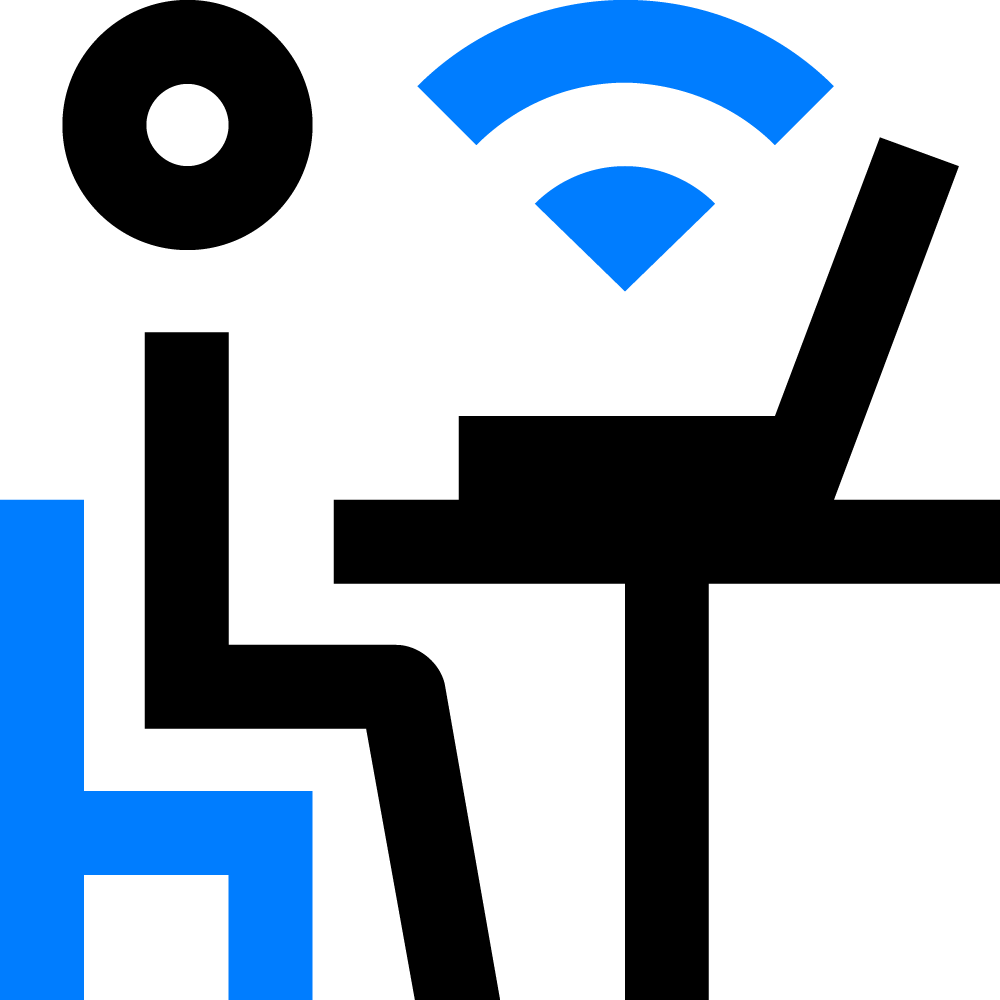Digitalisation for People, Planet and Prosperity
- Select
- English
Internet policy
Information and communication technologies (ICTs) and digital technologies have a catalytic power to drive economic and social progress across areas as diverse as education, healthcare, governance, agriculture, finance, and environmental sustainability. Needling business innovation together with enabling policy and regulatory measures are a prerequisite to reap the full potential of digitalisation and ensure an equitable and sustainable future for everyone, everywhere.
Go directly to:
While the global community is falling short of our shared and universal commitment to deliver on 17 ambitious goals for people, planet and prosperity by 2030, growing digital adoption presents as an ally in transforming quality of life globally, providing access to information, revolutionising various sectors of industry and unlocking new avenues for sustainable development.
ICC firmly believes in this unique potential of ICTs and digital technologies to foster sustainable development. As the world’s largest business organization, ICC draws on the experience and evidence of businesses of all sizes and sectors to assess how digitalisation efforts driven by the private sector contribute to advancing the Sustainable Development Goals.
Based on business case studies, this paper explores how investment, innovation, and capacity-building projects by private companies to deliver digital infrastructure, services and skills enable:
The paper identifies barriers that might stand in the way of achieving these objectives and offers concrete recommendations on how to address them, as well as a comprehensive model for holistic policymaking.
In order to drive sustainable development through the catalytic power of ICTs and digital technologies, ICC encourages policymakers to:
Only by combining the dynamism of industry innovation with enabling policy and regulatory measures can we unleash the boundless potential of ICTs and digital technologies, and realise the full array of the SDGs, leaving no one behind.
For more successful examples of business driving sustainable development through digitalisation, please refer to the ICC Digitalisation for People, Planet and Prosperity case study repository.

FTCCI and Amazon have partnered to digitize and empower 10 million micro, small, and medium enterprises (MSMEs) and create 2 million jobs by 2025 in India. Currently, they have already digitised 4 million MSMEs and created 1.5 million jobs. The platform has also grown from having 100 sellers in 2013 to 11 lakhs currently, with 50% of sellers coming from tier-2 and 3 cities.
Regional Focus : Asia
Case study lead & partners : Federation of Telangana Chambers of Commerce and Industry (FTCC) ⎪Amazon

Through over 200 public and private partnerships in Spain and Latin America, Conecta Empleo is focused on enhancing citizens’ digital employability in a rapidly evolving labour market. The project, led by Fundacion Telefonica, offers training in various digital and soft skills, and real-time information on digital labor demands at regional, national, and local levels. In 2022, over 305,000 unique users enrolled in courses , with a total of 1,036,000 registered users on the platform. Notably, 55% of users in 2022 were women.
Regional Focus : Europe;Latin America and the Caribbean;
Case study lead & partners : Fundacion Telefonica ⎪Fundacion Telefonica

Orange Digital Centers is a network of support structures for young people and entrepreneurs across 17 countries in Africa and the Middle East, as well as 8 countries in Europe. The initiative involves partnerships with governments, NGOs, academia, and organizations like GIZ and Digital Africa, making significant impact, benefiting 749,000 people in Africa and the Middle East, with 42,000 youth trained (40% of whom are women), and over 6,800 people trained in Europe.
Regional Focus : Africa;Europe;Middle East and North Africa;
Case study lead & partners : Orange ⎪German Federal Ministry for Economic Cooperation and Development (BMZ)
Developed by Microsoft, Planet Labs, and The Nature Conservancy, the Global Renewables Watch utilises AI and satellite imagery to map and measure utility-scale solar and wind installations worldwide, enabling users to evaluate clean energy transition progress, track trends, and understand land use patterns. As of June 2023, the mapping is complete for the United States, Germany, India, Kenya, Brazil, and Egypt.
Regional Focus : Africa;Asia;Europe;Latin America and the Caribbean;Middle East and North Africa;Northern America;Oceania;
Case study lead & partners : Microsoft ⎪Planet Labs PBC and the Nature Conservancy
Building on Ericsson’s award-winning Connected Mangrove project, this initiative partners with Aga Khan Agency for Habitat India and focuses on enhancing the resilience of vulnerable coastal communities in Gujarat, India against climate change and natural hazards through ecosystem-based solutions. The project includes community-led efforts to plant 20,000 fruit-bearing trees across 10 villages, supporting environmental conservation but while creating alternative income opportunities for over 2,000 local families.
Regional Focus : Asia;
Case study lead & partners : Aga Khan Agency for Habitat India (AKAH India) ⎪Ericsson India Global Services Private Limited Aga Khan Agency for Habitat India (AKAH India) Department of Climate Change, Government of Gujarat Forest Department, Porbandar, Government of Gujarat

Soiltech uses AT&T Internet of Things connectivity to optimize food from soil to storage, helping increase yield, reduce waste and lower emissions. With implemented solutions in implemented this solution in Canada, Denmark, Germany, Japan, Mexico, the United States and the UK, the project reduces the consumption of irrigation water, reduces spoilage of crops, and reduces emissions from farm vehicles. Using the Soiltech Sensor, a potato farm covering 10,000 acres could, among others, save 500 million gallons of water a year and reduce carbon emissions equivalent to over 250,000 gallons of gasoline.
Regional Focus : Africa;Asia;Europe;Latin America and the Caribbean;Northern America;
Case study lead & partners : AT&T ⎪Soiltech Wireless Inc

By partnering with State Departments of Education in Brazil, the “Data Science in Schools” program ran by Vivo Telefônica Foundation, aims to equip high school students with the tools and knowledge needed to succeed in a data-centric world. The program not only focuses on technical skills but also emphasizes the importance of ethical considerations and responsible data usage. As of 2023, the project is in its second year of implementation, engaging three state education departments and operating in over 24 schools with an enrollment of 700 students in the course.
Regional Focus : Latin America and the Caribbean;
Case study lead & partners : Vivo Telefônica Foundation ⎪Mato Grosso State Education Department, Santa Catarina State Education Department, Espírito Santo State Education Department

To incubate digital talents, while helping revitalise Mexico’s rural economy, Alibaba and local partners have established eight digital villages in six Mexican states, benefiting over 1500 local companies. The “Mexican Digital Village Project” nurtures local talent and supports the digital transformation of Mexican micro, small, and medium-sized businesses, with over 8,000 Mexican university students having received training, and nearly 1,500 local businesses having undergone digital transformation.
Regional Focus : Latin America and the Caribbean;
Case study lead & partners : Alibaba Group

Microsoft’s Cybersecurity Skills Initiative addresses the global cybersecurity threat by partnering with nonprofits and educational institutions to train the next generation of cybersecurity professionals in 28 countries across the world. With a focus on empowering women in cybersecurity, Microsoft launched a series of new partnerships WOMCY, Women4Cyber, ITU’s Women in Cyber Mentorship Program, and WiCyS, focused on skilling women in cybersecurity. Overall, the program has trained over 400,000 people worldwide through a variety of channels, including the Microsoft Learn platform.
Regional Focus : Africa;Asia;Europe;Latin America and the Caribbean;Middle East and North Africa;Oceania;
Case study lead & partners : Microsoft ⎪’WOMCY (LATAM Women in cybersecurity), Women4Cyber, ITU Women in Cyber Mentorship Program, WiCyS (Women in Cybersecurity), OECD
Contact
Timea Suto ⎪Global Digital Policy Lead ⎪ tel: 33 (0) 1 49 53 28 07 ⎪ Contact by email